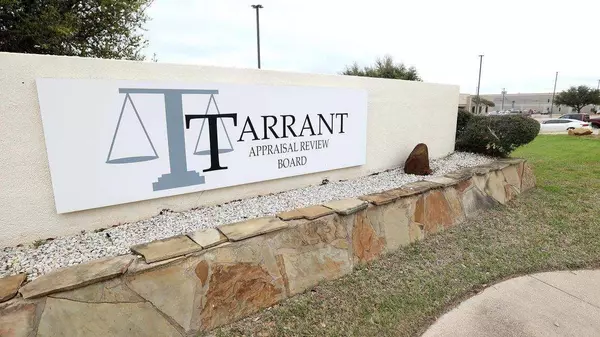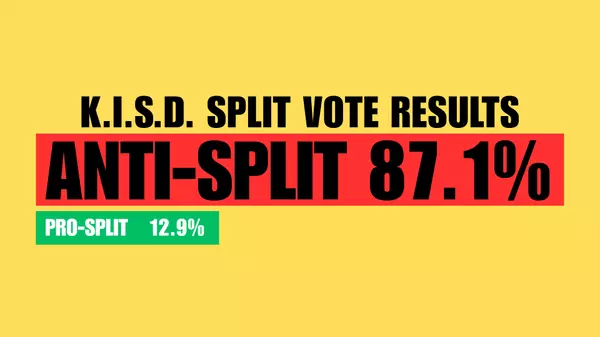Dave Ramsey Real Estate ELP and Advice

Dave Ramsey Real Estate ELP and Advice | Fort Worth Texas
If you're thinking about buying or selling a home, it would be smart to do your homework and make the best decision you can for your finances.
Any real estate transaction you have is going to be among the largest financial transactions of your entire life. The funny thing is, some people actually put more time into thining about what they're going to have for dinner than they do about planning to enter the real estate transaction with a smart financial plan.
There are plenty of financial advisors that will give you advice on how to buy a house. From Suze Orman, Clark Howard, David Bach, Robert Kiyosake, to Dave Ramsey. Everybody has an opinion.
I've studied them all. These people are full of wisdom. I tend to think, if you are the kind of person that is going to research and submit yourself to the authroity of a set of guiding principles, you're going to probably be ok no matter who you listen to. The folks that really get themselves into trouble are the ones that don't seek any kind of guidance whatsoever.
With that being said, I am quite partial to Dave Ramsey. He teaches based on Biblical principles, which is important to me, and he just doesn't give advice that is questionable. He is very conservative, and for this reason, it's difficult to fault him for anything except being too conservative. I'm ok with this.
In December 2007 I found myself in a position, as a result of paying a LOT of dummy tax, in debt up to $300,000, much of which was revolving credit (business unsecured lines of credit). It is only because of adhearing to the principles that Dave Ramsey teaches that I can now say I'm on baby step #7 and I'm DEEEEEEEEEEEEEBBBT FREEEEEEEEEEEEEE!!! (he features callers on his radio show yelling "I'm debt free." That was my version of yelling in text).
Where to begin? The best first step would be to just call my office. There is far too much to share on a blog post. We can tailer a plan of action according to Dave's principles as demanded by your specific uniqe situation. Our number is 817-381-3800 or email at hello@chandlercrouch.com
If you'd like to self study, these are good resources to begin with:
Dave Ramsey Mortgage Do's and Don'ts
You’ve got plenty of options when it comes to financing the purchase of your home. Dave doesn’t recommend most of them, but it’s a good idea to know what’s out there and why you need to avoid some of the more popular mortgage options.
Adjustable Rate Mortgages (ARMs)
ARMs hook homebuyers with a low initial rate, then, after a designated period, the rate fluctuates for the remainder of the life of the loan. This kind of loan actually transfers the risk of rising interest rates to you, the homeowner. Right now, interest rates are incredibly low, and they have been for some time. But once rates start to adjust, there’s only one direction they can go: up! This risk makes an ARM one of the worst mortgage options available. Do not finance your home with an ARM.
Federal Housing Administration Loan (FHA)
FHA mortgages are backed by the government, which means the government insures the bank so it won’t lose its money if you don’t make your payments. You can qualify for an FHA loan with a down payment as low as 3%. But new regulations require you to keep private mortgage insurance (PMI) for the life of the loan. PMI can cost around $100 a month per $100,000 borrowed.
Department of Veterans Affairs (VA)
Loans designed to make it easier for our country’s military veterans to purchase homes are a great idea in theory, but the program falls short in practice. VA loans are backed by the Department of Veterans Affairs and allow veterans to purchase a home with practically no down payment. VA loans also have lot of fees, and interest rates are usually higher than those for conventional loans.
Buying the Right Way
The best way to buy a home is to pay cash for it—the 100% down plan. It sounds unrealistic, but people do it every day. And not just those with super-deep pockets. Many save for years to achieve their goal.
If you’re going to buy a home with a mortgage, you need to be on Baby Step 3, debt-free with a three- to six-month emergency fund in place. In Baby Step 3b, save up your down payment—at least 10%, but 20% will allow you to avoid PMI payments.
Your home loan should be a conventional, fixed-rate mortgage with a 15-year (or less) term. Do not get a 30-year mortgage! A $175,000, 30-year mortgage with a 4% interest rate will cost you $68,000 more over the life of the loan than a 15-year mortgage will. That’s a lot of money you could use to build up your retirement fund or save for your kids’ college.
Your monthly payment should not exceed 25% of your take-home pay. Any more than that will tie up too much of your income and slow your progress through the remaining Baby Steps.
House Hunt With a Pro
Once you have your bases covered financially, it’s time to start house hunting. Talk with a professional agent about your financial goals so they can help you find a home that fits your budget.
(Call Chandler Crouch Realtors at 817-381-3800)
Take Control of Your Money One Step at a Time
Building a new future with money is a lot like building a home. You don't add the roof until you've finished framing, and you don't frame until the foundation is secure. Dave Ramsey's Baby Steps are designed to help you out of debt and stress and into a life of saving and giving. We're all in different places with money. Start right where you are and get where you want to be. Know-how is 20% of the equation. Behavior change and self-discipline make up the other 80%. You can do it! Just follow the steps.
Here's The Process:
-
$1,000 to Start an Emergency Fund
An emergency fund is for those unexpected events in life you can't plan for. Whether there's a plumbing issue and everything but the kitchen sink is draining, or your brakes are squealing at every stop sign, you can be ready! -
Pay Off All Debt but the House
List all debts but the house in order. The smallest balance should be your number one priority. Don't worry about interest rates unless two debts have similar payoffs. If that's the case, then list the higher interest rate debt first. -
3 to 6 Months of Expenses in Savings
This step is all about building a full emergency fund. It's time to kick debt for good, with 3–6 months' worth of emergency savings. Sit down and calculate how much you need to live on for 3–6 months (for most that's between $10,000–15,000) and start saving to protect yourself against life's bigger surprises like the loss of a job. You'll never be in debt again—no matter what comes your way. -
Invest 15% of Household Income Into Retirement
Now it's time to get serious about retirement. With no payments and a full emergency fund, put 15% toward the retirement of your dreams. Between your 401(k), Roth IRA, and Traditional IRA, you have a lot of options. Find the fit that is right for you. The money you were using to attack debt can now help build your future. -
College Funding for Children
College tuitions and housing expenses continue to rise. Don't let college sneak up on you. Saving now will put you ahead of the game when your kids graduate from high school. Two smart ways to save for your kids' college are a 529 college savings fund or an ESA (education savings account). These are both tax-advantaged savings vehicles that let you save money for your kids' education expenses. -
Pay Off Home Early
It takes the average family five to seven years to pay their home off early. Just imagine life with no mortgage. There's only one more debt standing in the way of freedom from all debt! Apply all the extra money toward paying off your home. Not only are you paying off your home early, you'll be saving tens of thousands of dollars in interest fees. -
Build Wealth and Give
This is the last step and by far the most fun. It's time to live and give like no one else! Build wealth, become insanely generous, and leave an inheritance for future generations. You know what people with no debt and no payments can do? Anything they want! Now that's leaving a legacy.
Great, So Where Do I Start?
The first step in taking control of your money is to create some cushion between you and life's little emergencies. Start by getting $1,000 in savings. It's easier than you think, and it's absolutely worth it.
Most people can do it in a month or less, and these tools can help you get started.
Dave Ramsey Background and Bio - Dave's Story
Written by Chandler Crouch
Broker/Owner at Chandler Crouch Realtors
See more media features on our News page
Categories
- All Blogs (119)
- Basics (17)
- Buyer Psychology (3)
- Career (1)
- CCR in the News (14)
- Community (23)
- Downsizing (3)
- Election (6)
- Financial Advice (14)
- Foreclosure (1)
- Heritage Subdivision (3)
- Home Refinancing (4)
- Home Search (2)
- How-to (22)
- HUD Homes (2)
- Just for fun (10)
- Legislative Involvement (6)
- Making an offer (5)
- Mortgage (2)
- Negotation (4)
- Preparing to Sell (10)
- Print media (3)
- Property Tax (53)
- Real Estate Market Report (26)
- Robert Montoya (1)
- Sell (1)
- Senior Housing (1)
- State (5)
- Static (1)
- TAD Reform (8)
- Tarrant County (15)
- Testifying (2)
Recent Posts











